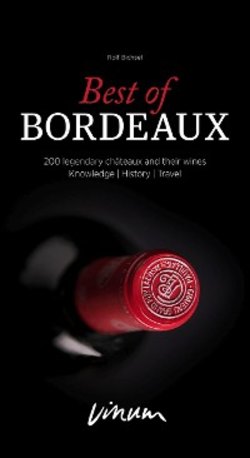Читать книгу Best of Bordeaux - Rolf Bichsel - Страница 41
Оглавление41
Brand and style History
estates and merchants. Why not sell direct? Quite simply because the broker
is a neutral party representing the interests of both partners, who would other-
wise be trying to get the better of one another. Brokers themselves do not sell
wines but simply take a fixed margin of four per cent, so it is in their interest to
regularly procure su
ffi
cient quantities, correctly assess the sales situation, the
demand and also the quality of the wine, and in the best cases justify a high
price (which helps the owner) whilst also ensuring that the wine remains af-
fordable to trade partners, who would otherwise go bankrupt or take their busi-
ness elsewhere. And to prevent brokers from deciding to engage in dumping
and undermine prices rather than following the unwritten rule of adhering to
a price guideline, sly sellers have been known to offer their daughters' hands
in marriage: the world of top Bordeaux is one huge family and solidarity rules
among family members, at least o
ffi
cially. Despite all the gloomy predictions,
this system which is so often written off has never functioned so well as over
the past twenty years, with the piper being paid (whether we like it or not) by
Bordeaux fans like us all over the world.
The theatre of aging
The road to success is a rocky one made of gravel, up to ten metres deep. The
benefits of this soil are that it drains water yet still always remains damp, is a
good heat store on frosty nights, requires the two or three grape varieties which
for centuries have proven their ability to root properly in the capricious climate,
and allows the grapes to ripen at leisure, so slowly that they become crisp and
thick-skinned, assimilate sugar (but not too much) and break down acidity be-
fore over-ripeness and rot set in. Wine pressed from these grapes and drunk
immediately turns out ink black, tart and almost undrinkable, tasting of grape
stems and pomace – ugh – one for the masochists. Instead, you would be better
sticking to fruity Burgundy, meaty Spanish examples or wines from the areas
around Saint-Emilion or Pomerol, which have smoother tannins (other than all
the New World copies which are now thankfully becoming rarer: the fashion
for over-extracted wines which reached its peak between 1995 and 2005 has
faded as quickly as it arrived). However, if you allow great Bordeaux from these
special soils to mature then it becomes unbeatable in terms of balance, airiness,
elegance and finesse, making it ideal for speculation, as great Bordeaux (particu-
larly Cabernet-based wines) goes on and on and keeps as well in a cellar as gold
bars, only tasting much better. And because modern winery technology now
means that the wines taste pleasant earlier but lose none of their aging ability,
great Bordeaux has remained ultra-modern and the whole world cannot get
enough of it. However, not even God knows how many cases are sold and drunk
and how many are stored and hoarded – perhaps because Peter is speculating
